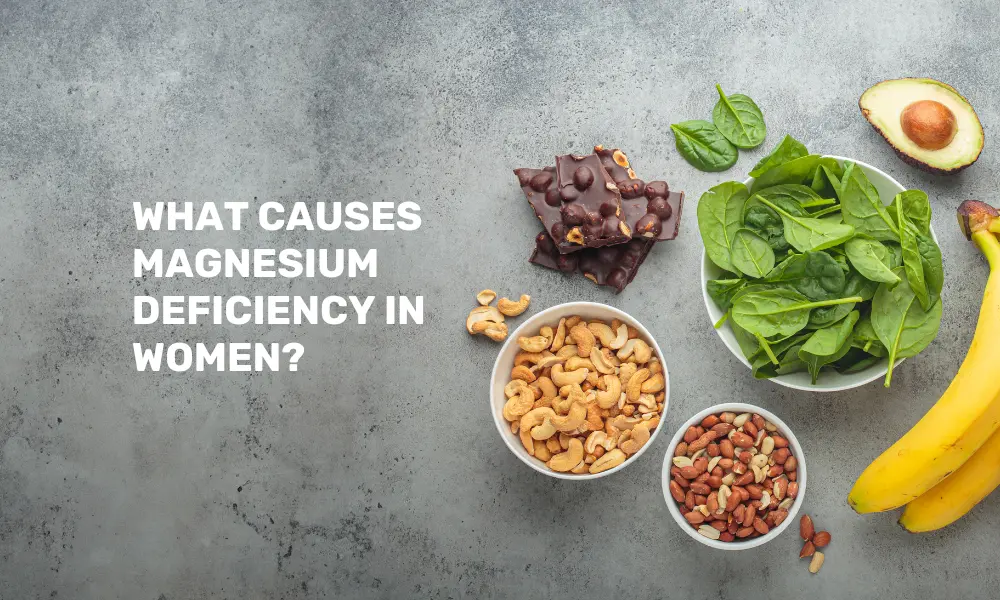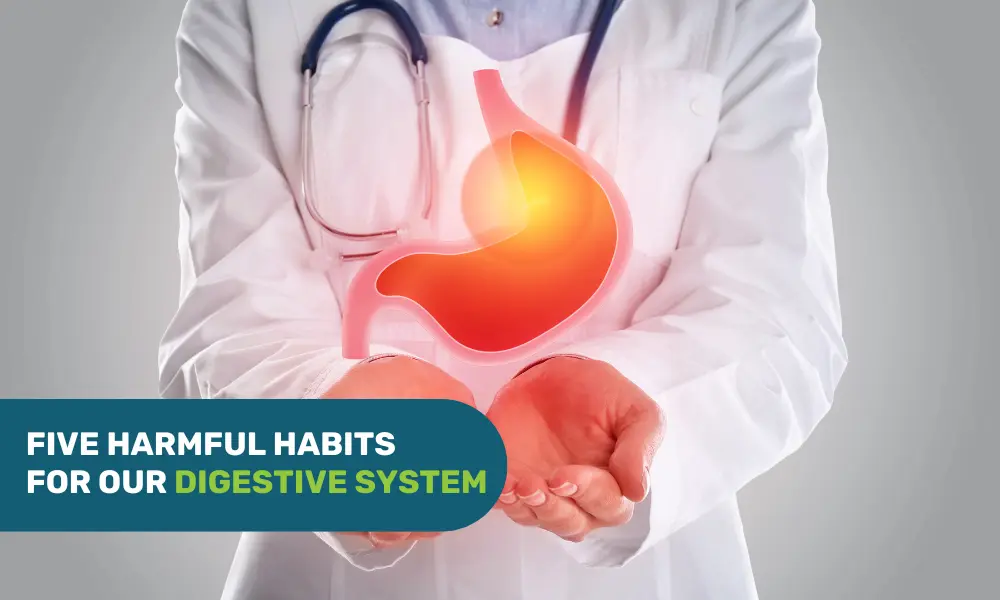Magnesium is one of the most vital minerals needed for the smooth functioning of the body. It supports over 300 biochemical reactions, making it essential for overall health. For women, magnesium is important in maintaining hormonal balance, bone health, cardiovascular function, and more. A magnesium deficiency can cause a range of health issues that particularly affect women during various stages of life.
Impact of Magnesium Deficiency on Women’s Health
Magnesium deficiency affects women’s health in multiple ways, often in subtle and gradual forms. Insufficient magnesium intake has been linked to conditions such as polycystic ovary syndrome (PCOS).
In such cases, supplementation can improve symptoms like hyperandrogenism, hirsutism, and sleep quality. As per the latest study, women need around 350 mg of magnesium daily to support basic biological functions.
More than 50% of our body’s magnesium is stored in the bones, so low magnesium levels primarily affect bone health. This is especially critical for women during pregnancy, lactation, and menopause when magnesium requirements naturally increase.
Why Magnesium is Vital for Women?
-
Magnesium supports hormonal balance in women, which is especially important for those experiencing premenstrual syndrome (PMS).
-
Hormonal fluctuations during menstruation can lead to symptoms such as mood swings, cramps, and bloating.
-
Magnesium, especially when combined with vitamin B6, has been shown to reduce irritability, anxiety, and physical discomfort associated with PMS.
-
Magnesium is essential for bone health, particularly as women age and face an increased risk of osteoporosis during menopause.
-
This mineral helps convert vitamin D into active form, which is important for bone density and calcium absorption.
-
Women with low magnesium levels may often experience weakened and brittle bones, frequent fractures, and a higher risk of developing osteoporosis.
Benefits During Pregnancy
Magnesium is vital during pregnancy as it helps prevent complications such as preterm labor, gestational hypertension, and preeclampsia. It also promotes the proper development of the fetal nervous system and regulates blood sugar levels, reducing the risk of gestational diabetes.
Cardiovascular and Mental Health Support
Magnesium plays a vital role in maintaining cardiovascular health, particularly for postmenopausal women who face a higher risk of heart disease. It helps keep blood pressure and heart rhythms stable and prevents plaque buildup in the arteries. Magnesium supplementation can reduce high blood pressure in older women.
Causes of Magnesium Deficiency in Women
-
Modern lifestyles have made magnesium deficiency increasingly common among women.
-
High intake of Processed foods, which are less in essential nutrients like magnesium, are a major culprit.
-
Increased levels of stress play a role, as the body consumes more magnesium during periods of anxiety, depleting its stores.
-
Hormonal fluctuations during menstruation, pregnancy, and menopause can increase magnesium needs, potentially leading to deficiencies.
-
Gastrointestinal conditions, like IBS or Crohn’s disease, may also impair magnesium absorption, further contributing to low magnesium levels.
Symptoms of Magnesium Deficiency
-
Muscle cramps and spasms
-
Fatigue and irritability
-
Anxiety
-
Difficulty sleeping
-
Numbness or tingling
-
Seizures
-
Cardiovascular problems like irregular heartbeats
-
High blood pressure
Long-term deficiency can lead to weakened bones, impaired calcium absorption, and increased risk of osteoporosis. It may also contribute to insulin resistance, raising the likelihood of developing type 2 diabetes.
How to reduce Magnesium Deficiency?
To maintain healthy magnesium levels, it is essential to include magnesium-rich foods in your diet.
-
Dark green leafy vegetables like fenugreek leaves, spinach, and amaranth are excellent sources.
-
Nuts like almonds, cashews, and pumpkin seeds are also good.
-
Legumes like chickpeas and moong dal are also magnesium-rich.
-
Whole grains like brown rice, bajra, and jowar can boost magnesium intake.
After looking at the important role of magnesium, it is crucial for us to ensure sufficient intake of this essential mineral in our daily diet. With conscious efforts and consistent intake of magnesium, one can overcome its deficiency. To consult a dietitian, CLICK HERE.





